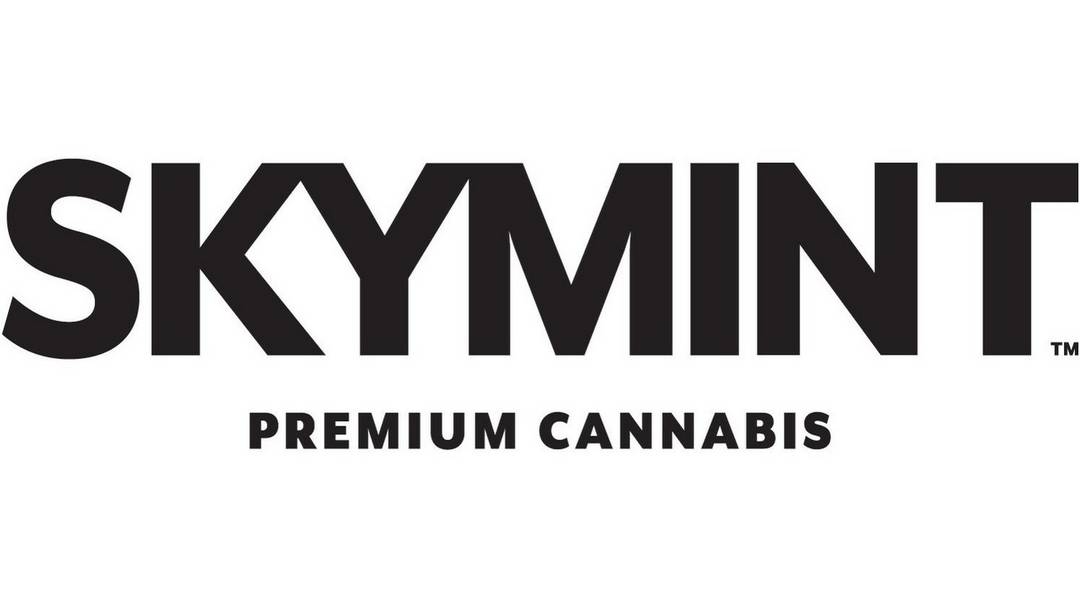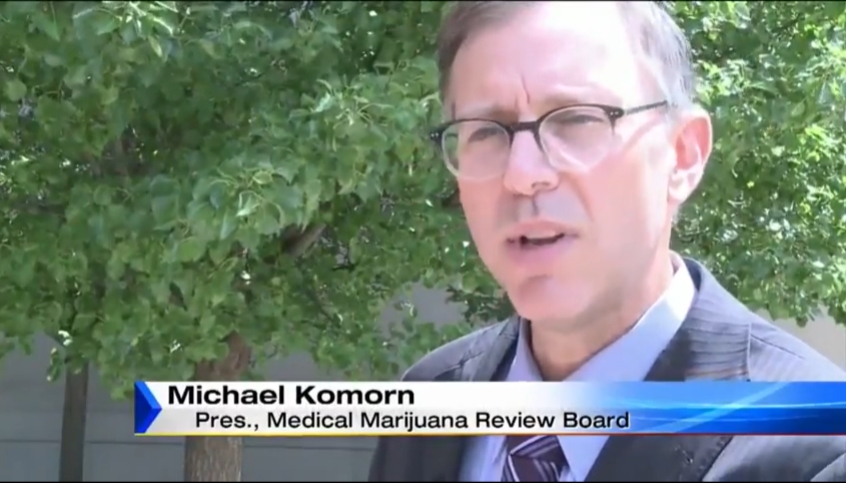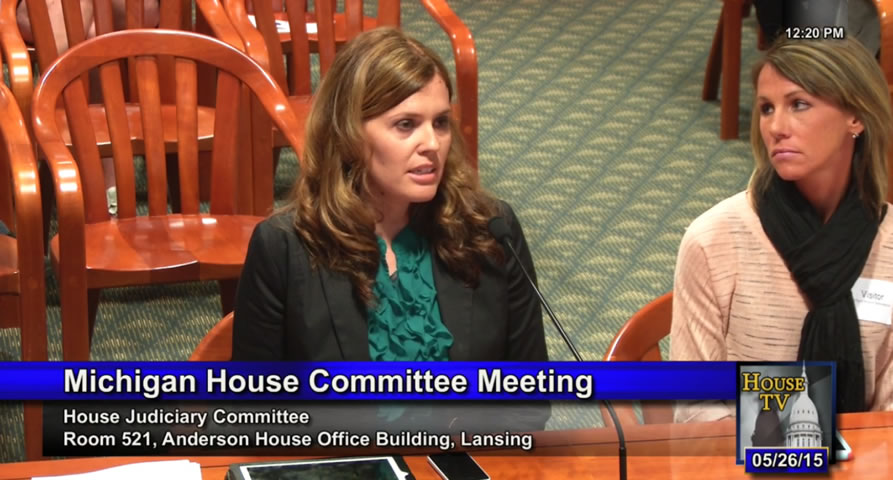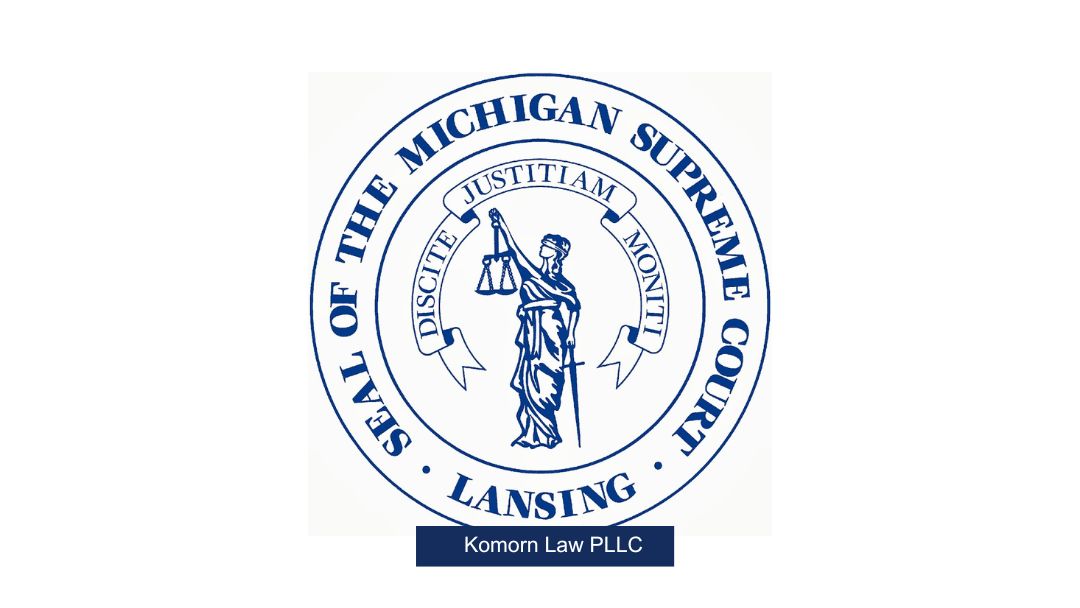No Results Found
The page you requested could not be found. Try refining your search, or use the navigation above to locate the post.

Vote Authorizes Judges to Reduce Sentences for Eligible Incarcerated Persons Beginning February 1, 2024 Should Guidelines Become Effective
WASHINGTON, D.C. — Today the Commission, by a majority vote, allowed for delayed retroactive application of Amendment 821 relating to criminal history—meaning that certain currently incarcerated individuals could be eligible for reduced sentences made effective beginning on February 1, 2024 (unofficial text). The Commission also adopted its next set of policy priorities that include, among other things, reviewing and potentially amending how the guidelines treat acquitted conduct for purposes of sentencing as well as assessing the degree to which certain Bureau of Prisons practices are effective in meeting the purposes of sentencing.
Equipped with a quorum of commissioners for the first time since 2018, the Commission voted in April to promulgate amendments to the federal sentencing guidelines—including Amendment 821 providing for targeted, evidence-based changes to certain criminal history rules. Because two parts of that amendment reduce the sentencing range of future defendants, the Commission is required by law to consider whether judges can extend those reductions to previously sentenced individuals.
The Commission voted to delay implementation of any order granting such reduced sentences to ensure that, to the extent practicable, all individuals who are to be released have the opportunity to participate in reentry programs and transitional services that will increase the likelihood of successful reentry to society.
U.S. District Judge Carlton W. Reeves, Chair of the Commission said, “Our decision today is one that brings hope to thousands of currently incarcerated people and their families. We listened to a full spectrum of views and considered the full costs associated with incarceration balanced with the time needed to review petitions and prepare for successful reentry.”
Part A of Amendment 821 limits the overall criminal history impact of “Status Points” at §4A1.1. Part B, Subpart 1 of Amendment 821 creates a new Chapter Four guideline at §4C1.1 decreasing by two the offense levels for defendants who did not receive any criminal history points and whose instant offense did not involve specific aggravating factors.
Judge Reeves added, “These prospective changes to the criminal history rules made by the Commission in April reflect evidence-based policy determinations that apply with equal force to previously sentenced individuals. Applying these changes retroactively will increase fairness in sentencing. At the same time, the 3-month delay will help ensure that individuals released based on our decision today receive the benefit of reentry programs and transitional services essential to support their successful reentry to society, which at the same time promotes public safety.”
The Commission estimated in its July 2023 Impact Analysis that retroactive application would carry a meaningful impact for many currently incarcerated individuals:
11,495 incarcerated individuals will have a lower sentencing range under Part A of Amendment 821 relating to “Status Points” with a possible sentence reduction of 11.7%, on average.
7,272 incarcerated individuals would be eligible for a lower sentencing range based upon the established criteria under Part B of Amendment 821 relating to “Zero-Point Offenders” with a possible sentence reduction of 17.6%, on average.
Today’s vote concludes two months of deliberations and the first amendment year of policy work for the commissioners, who were all confirmed last August. As part of its deliberations, the Commission received expert testimony and public comment from a wide spectrum of stakeholders, including senators, judges, lawyers, religious leaders, doctors, professors, advocates, victims, families, and incarcerated individuals.
Charged with a Crime?
Lost Your License?
Conspiracy or CCE?
Thought Crimes?
Call Our Office for a Free Case Evaluation
This year’s guideline amendments are with Congress for a 180-day review period ending November 1, 2023. If Congress does not act to disapprove the amendments, courts can begin considering petitions for sentence reductions and could order a reduced term of imprisonment effective February 1, 2024 or later.
Today, the Commission also finalized policy priorities for the amendment year ending May 1, 2024. In light of the 40th anniversary of the Sentencing Reform Act (SRA), the Commission anticipates undertaking a number of projects examining the degree to which current sentencing, penal, and correctional practices are effective in meeting the purposes of sentencing as set forth in the SRA.
Among these issues, the Commission will work to assess the degree to which certain practices of the Bureau of Prisons are effective in meeting the purposes of sentencing as set forth in 18 U.S.C. § 3553(a)(2). The Commission will also compile and disseminate information on court-sponsored programs relating to diversion, alternatives-to-incarceration, and reentry.
The Commission will also review and potentially amend how the guidelines treat acquitted conduct for purposes of sentencing. The Supreme Court recently denied several petitions for writs of certiorari related to the use of acquitted conduct. In issuing the denials, three Justices supported the denial to allow the Commission more time to address the issue. “Last year’s amendment cycle was busy and abbreviated. The Commission appreciates the opportunity to give proper attention to acquitted conduct, and we will do so this year,” said Judge Reeves.
The Commission will continue to examine the career offender guidelines, including updating the data analyses and statutory recommendations made in the Commission’s 2016 report to Congress entitled Career Offender Sentencing Enhancements. The Commission will also continue its consideration of alternative approaches to the “categorical approach” through workshops convened to discuss the scope and impact of the career offender penalty enhancements.
The Commission will further continue its research agenda through examination of various issues, including methamphetamine offenses, sentencing differences for cases disposed of through trial versus plea, and sentences involving youthful individuals.
The Commission invited public comment on its tentative list of policy priorities in June. “We are grateful for the volume of comment the Commission received regarding priorities for the coming year,” said Chair Reeves. “We look forward to continued input from the public as we work through this year’s priorities.” A compilation of public comment can be reviewed here.
Visit www.ussc.gov for more information about the amendment process and the changes approved today.
The page you requested could not be found. Try refining your search, or use the navigation above to locate the post.

The federal U.S. Sentencing Commission (USSC) has approved a revised amendment to sentencing guidelines, advising judges to adopt a more lenient approach towards prior marijuana possession offenses.
Members of the commission voted to approve a range of amendments to the current guidelines, incorporating a multi-part revision of criminal history.
This revised version now encompasses cannabis possession as a compelling illustration of an offense that typically necessitates contemplation for sentencing discretion.
As it currently stands, federal judges are instructed to consider previous convictions, which include cannabis offenses at the state level, as aggravating factors when determining sentencing for new cases.
But as legalization of marijuana expands to more states, advocates have been advocating for revised guidelines to prevent an individual’s marijuana-related record from contributing criminal history points that could result in harsher sentencing.
The proposal does not aim to completely eliminate marijuana convictions as a factor in criminal history. However, it suggests modifying the commentary within the guidelines to consider instances where a downward departure from the defendant’s criminal history may be appropriate, specifically mentioning sentences resulting from possession of marijuana offenses.
“While marihuana remains a Schedule I controlled substance under the federal Controlled Substances Act (CSA), subjecting offenders to up to one year in prison (and up to two or three years in prison for repeat offenders), many states and territories have reduced or eliminated the penalties for possessing small quantities of marihuana for personal use,” it notes.
The term ‘downward departure’ refers to situations where federal judges exercise their discretion to impose sentences that are below the recommended minimum under current guidelines.
It is crucial to recognize and explicitly acknowledge that mere possession of cannabis, without any intent to sell or distribute it to others, presents a compelling case that warrants leniency in sentencing.
By doing so, we uphold the principle of fairness and ensure that appropriate discretion is exercised in such circumstances.
USSC’s report in January exposed a disturbing reality: countless individuals faced harsher federal prison sentences as a consequence of their prior convictions on cannabis possession charges in states that have since enacted reforms to marijuana laws.
The revised guidance is on track to be presented to Congress by May 1 2023, and once accepted without opposition from lawmakers, the amendment will officially take effect on November 1.
Follow up…
The page you requested could not be found. Try refining your search, or use the navigation above to locate the post.

Tropics LP, under a new entity called Skymint Acquisition Co., acquired the assets of Green Peak Industries, doing business as Skymint, for $109.4 million.
Nuff said
Please note that cannabis at the time of this post being published is still a controlled substance illegal drug federally.
No deduction or credit shall be allowed for any amount paid or incurred during the taxable year in carrying on any trade or business if such trade or business (or the activities which comprise such trade or business) consists of trafficking in controlled substances (within the meaning of schedule I and II of the Controlled Substances Act) which is prohibited by Federal law or the law of any State in which such trade or business is conducted.

Fri, 10/30/2015 - 4:11pm A Michigan medical-marijuana patient claims in court papers that state police crime labs are bending to pressure from prosecutors in analyzing marijuana samples, leading to harsher punishments. Maxwell Lorincz, 35, was originally...

SPRING LAKE, Mich. – The defense representing a Spring Lake father facing a felony marijuana charge is accusing Michigan State Police Forensic Science Division crime labs of misreporting marijuana intentionally. It’s an allegation with statewide implications. ...

By Attorney Michael Komorn " Lieutenant, this lawyer is a pain in the ass, I can't stand him, I really hate him" This was my client's observation of the prosecutor after exiting the conference room she and I had been in for over an hour discussing and...

"Allowing medical marijuana for those with autism was supposed to be the clinical trial," Komorn said. "Instead, we're going to have criminal trials." Lawyer slams decision to deny cannabis to autistic kids The Detroit News Article August 28, 2015 - Lansing —...

April 23, 2015 - In Western Michigan yet another Michigan Medical Marijuana patient is fighting for his freedom in a system of confusing laws. He is also fighting for the right to see his child all while the State of Michigan possibly destroys his family and...

Aug 5, 2015 - After a year long battle, Michigan Attorney Michael Komorn and his staff have chalked up another positive conclusion for a client caught up in the medical marijuana and forfeiture debacle. Some may consider it a win, but this slow ruination of a family...

For most... a security video system is a tool to protect themselves from liability, false accusations and identify activities around their home or business. For some, such as thieves, those who make false accusations and liars...it works against them. There...

July 24, 2015 Dashcam video released this week from a traffic stop shows how a confrontation between a Texas woman and the arresting officer escalated. Given the circumstances in the aforementioned Sandra Bland case, we wanted to find out what is allowed and not...

The Detroit police raided and made arrests at marijuana dispensary in an article in the Detroit Free Press from July 14, 2015. Detroit police arrested two people and confiscated two firearms and drugs during a raid on a marijuana dispensary Tuesday afternoon. Police...

On November 8th, 2008, by a majority of 63 percent, the citizens of the State of Michigan voted into law the constitutional initiative, Initiated Law 1 of 2008, ratified into law December 4, 2008, herein referred to as the Michigan Medical Marihuana Act, MCL 333.26421...

Would enforcing payment and accepting money from a federally illegal business cause you to be caught up in RICO, CCE and conspiracy charges that would put you away for decades? For you yes – For the government a big NO.
Multistate marijuana company Trulieve Cannabis Corp. is currently seeking a federal tax refund amounting to $143 million. The company firmly maintains that it does not owe the taxes it had diligently paid over a span of three years.
“This determination is supported by legal interpretations that challenge the company’s tax liability under Section 280E of the Internal Revenue Code,” Florida-based Trulieve announced through a recent news release.
Section 280E poses a significant obstacle for state-legal marijuana companies, as it prohibits them from deducting their standard business expenses. Consequently, these companies are burdened with substantially increased tax bills.
No deduction or credit shall be allowed for any amount paid or incurred during the taxable year in carrying on any trade or business if such trade or business (or the activities which comprise such trade or business) consists of trafficking in controlled substances (within the meaning of schedule I and II of the Controlled Substances Act) which is prohibited by Federal law or the law of any State in which such trade or business is conducted.

Fri, 10/30/2015 - 4:11pm A Michigan medical-marijuana patient claims in court papers that state police crime labs are bending to pressure from prosecutors in analyzing marijuana samples, leading to harsher punishments. Maxwell Lorincz, 35, was originally...

SPRING LAKE, Mich. – The defense representing a Spring Lake father facing a felony marijuana charge is accusing Michigan State Police Forensic Science Division crime labs of misreporting marijuana intentionally. It’s an allegation with statewide implications. ...

By Attorney Michael Komorn " Lieutenant, this lawyer is a pain in the ass, I can't stand him, I really hate him" This was my client's observation of the prosecutor after exiting the conference room she and I had been in for over an hour discussing and...

"Allowing medical marijuana for those with autism was supposed to be the clinical trial," Komorn said. "Instead, we're going to have criminal trials." Lawyer slams decision to deny cannabis to autistic kids The Detroit News Article August 28, 2015 - Lansing —...

April 23, 2015 - In Western Michigan yet another Michigan Medical Marijuana patient is fighting for his freedom in a system of confusing laws. He is also fighting for the right to see his child all while the State of Michigan possibly destroys his family and...

Aug 5, 2015 - After a year long battle, Michigan Attorney Michael Komorn and his staff have chalked up another positive conclusion for a client caught up in the medical marijuana and forfeiture debacle. Some may consider it a win, but this slow ruination of a family...

For most... a security video system is a tool to protect themselves from liability, false accusations and identify activities around their home or business. For some, such as thieves, those who make false accusations and liars...it works against them. There...

July 24, 2015 Dashcam video released this week from a traffic stop shows how a confrontation between a Texas woman and the arresting officer escalated. Given the circumstances in the aforementioned Sandra Bland case, we wanted to find out what is allowed and not...

The Detroit police raided and made arrests at marijuana dispensary in an article in the Detroit Free Press from July 14, 2015. Detroit police arrested two people and confiscated two firearms and drugs during a raid on a marijuana dispensary Tuesday afternoon. Police...

On November 8th, 2008, by a majority of 63 percent, the citizens of the State of Michigan voted into law the constitutional initiative, Initiated Law 1 of 2008, ratified into law December 4, 2008, herein referred to as the Michigan Medical Marihuana Act, MCL 333.26421...

The revised federal workplace drug testing guidelines, issued by the Substance Abuse and Mental Health Services Administration (SAMHSA), Department of Health and Human Services (HHS), are intended to provide clarity. These guidelines emphasize that individuals who use medical marijuana under a doctor’s recommendation in a legal state cannot use it as a valid justification for a positive THC test.
In notices published in the Federal Register, SAMHSA announced that it had amended guidance of saliva and urine testing to include the cannabis policy clarification, despite receiving comments opposing the proposal after they were first announced last year.
A Rule by the Health and Human Services Department on 10/12/2023
AGENCY:
Substance Abuse and Mental Health Services Administration (SAMHSA), Department of Health and Human Services (HHS).
ACTION:
Issuance of mandatory guidelines.
SUMMARY:
The Department of Health and Human Services (“HHS” or “Department”) has revised the Mandatory Guidelines for Federal Workplace Drug Testing Programs using Oral Fluid (OFMG) which published in the Federal Register of October 25, 2019.
DATES:
The mandatory guidelines are effective October 10, 2023.
FOR FURTHER INFORMATION CONTACT:
Eugene D. Hayes, Ph.D., MBA, SAMHSA, CSAP, DWP; 5600 Fishers Lane, Room 16N02, Rockville, MD 20857, by telephone (240) 276–1459 or by email at Eugene.Hayes@samhsa.hhs.gov.
SUPPLEMENTARY INFORMATION:
Executive Summary
These revised Mandatory Guidelines for Federal Workplace Drug Testing Programs using Oral Fluid (OFMG) establish a process whereby the Department annually publishes the authorized drug testing panel ( i.e., drugs, analytes, or cutoffs) to be used for Federal workplace drug testing programs; revise the definition of a substituted specimen to include specimens with a biomarker concentration inconsistent with that established for a human specimen, establish a process whereby the Department publishes an authorized biomarker testing panel ( i.e., biomarker analytes and cutoffs) for Federal workplace drug testing programs; update and clarify the oral fluid collection procedures; revise the Medical Review Officer (MRO) verification process for positive codeine and morphine specimens; and require MROs to submit semiannual reports to the Secretary or designated HHS representative on Federal agency specimens that were reported as positive for a drug or drug metabolite by a laboratory and verified as negative by the MRO. In addition, some wording changes have been made for clarity and for consistency with the Mandatory Guidelines for Federal Workplace Drug Testing Programs using Urine (UrMG) or to apply to any authorized specimen type.
The Department is publishing a separate Federal Register Notification (FRN) elsewhere in this issue of the Federal Register with the revised UrMG, which include the same or similar revisions as the OFMG, where appropriate.
Pursuant to its authority under section 503 of Public Law 100–71, 5 U.S.C. 7301, and Executive Order 12564, HHS establishes the scientific and technical guidelines for Federal workplace drug testing programs and establishes standards for certification of laboratories engaged in drug testing for Federal agencies.
Using data obtained from the Federal Workplace Drug Testing Programs and HHS-certified laboratories, the Department estimates that 275,000 urine specimens are tested annually by Federal agencies. No Federal agencies are testing hair or oral fluid specimens at this time.
HHS originally published the Mandatory Guidelines for Federal Workplace Drug Testing Programs (hereinafter referred to as Guidelines or Mandatory Guidelines) in the Federal Register (FR) on April 11, 1988 (53 FR 11979). The Substance Abuse and Mental Health Services Administration (SAMHSA) subsequently revised the Guidelines on June 9, 1994 (59 FR 29908), September 30, 1997 (62 FR 51118), November 13, 1998 (63 FR 63483), April 13, 2004 (69 FR 19644), and November 25, 2008 (73 FR 71858). SAMHSA published the current Mandatory Guidelines for Federal Workplace Drug Testing Programs using Urine (UrMG) on January 23, 2017 (82 FR 7920) and published the current Mandatory Guidelines for Federal Workplace Drug Testing Programs using Oral Fluid (OFMG) on October 25, 2019 (84 FR 57554). SAMHSA published proposed Mandatory Guidelines for Federal Workplace Drug Testing Programs using Hair (HMG) on September 10, 2020 (85 FR 56108) and proposed revisions to the UrMG (87 FR 20560) and OFMG (87 FR 20522) on April 7, 2022.
There was a 60-day public comment period following publication of the proposed OFMG, during which 53 commenters submitted 204 comments on the OFMG. These commenters were comprised of individuals, organizations, and private sector companies. The comments are available for public view at https://www.regulations.gov/. All comments were reviewed and taken into consideration in the preparation of the Guidelines. The issues and concerns raised in the public comments for the OFMG are set forth below. Similar comments are considered together in the discussion.
Summary of Public Comments and HHS’s Response
The following comments were directed to the information and questions in the preamble.
Some submitted comments were specific to transportation industry drug testing which is regulated by the Department of Transportation (DOT). The Department has noted these comments below, but responded only to comments that are relevant to these Guidelines. DOT issued a notice of proposed rulemaking (NPRM) on February 28, 2022 (87 FR 11156). Subsequently, DOT extended the comment period to April 29, 2022 (87 FR 16160), and published the final rule on May 2, 2023 (88 FR 27596).
Authorized Drug Testing Panel
The Department requested comments on its proposal to publish the drug testing panel separately from the OFMG in a Federal Register\[[[[p Notification (FRN) each year. Fifteen commenters submitted a total of 40 comments on this topic for the OFMG.
Nine commenters disagreed with publishing a revised drug testing panel without a public comment period, expressing concerns that stakeholders including individuals subject to federally regulated drug testing would not be given the opportunity to provide comment and that the Department would miss valuable input including information on costs and burden. Some of these commenters suggested alternate ways to permit public comment while enabling a quicker response to testing panel changes ( e.g., setting a shorter comment period, publishing the Guidelines as an interim final rule or issuing an advance notice of proposed rulemaking). The Department has reviewed these comments and suggestions and determined that no changes to the proposed Guidelines are needed. The Department has developed procedures which will allow review and comment before testing panel changes are published, as described below.
Consistent with current procedures, prior to making a change to the drug or biomarker testing panel, the Department will conduct a thorough review of the scientific and medical literature, and will solicit review and input from subject matter experts such as Responsible Persons (RPs) of HHS-certified laboratories, Medical Review Officers (MROs), research scientists, manufacturers of collection devices and/or immunoassay kits, as well as Federal partners such as DOT, the Food and Drug Administration (FDA), and the Drug Enforcement Administration (DEA). Further, the Department plans to provide notice and opportunity for public comment regarding any proposed changes to the drug and biomarker testing panels as part of Drug Testing Advisory Board (DTAB) meetings and procedures.
Information regarding any proposed changes to the drug and biomarker testing panels and a request for public comment will be included in an advance notice of the DTAB meeting published in the Federal Register , along with the timeframe and method(s) for comment submission. During the meeting, the Department will present the basis for adding or removing analytes ( i.e., including technical and scientific support for the proposed changes), as well as a discussion of related costs and benefits. This information will be provided in advance to DTAB members. The Department will review all submitted public comments and will share information during a DTAB session prior to DTAB’s review of SAMHSA’s recommendation to the Secretary regarding each proposed change.
The Department will make the final decision on any panel changes and include the effective date(s) in the annual Notice, to allow time for drug testing service providers ( e.g., immunoassay kit manufacturers, oral fluid collection device manufacturers) to develop or revise their products, and for HHS-certified laboratories to develop or revise assays, complete validation studies, and revise procedures.
Three commenters specifically agreed with the need to streamline and improve processes for making changes to the testing panels, but expressed concern over the process for testing panel review and who would be involved. These commenters suggested involving other stakeholders ( e.g., HHS-certified laboratories, DTAB, FDA). As noted above, the Department will use multiple methods and involve subject matter experts from various stakeholder groups to determine testing panel changes, and will provide opportunity for public review and comment before changes are made. FDA, DOT, and other Federal partners will have opportunities to review and provide input.

Laws and Penalties in Michigan of Carrying a Concealed Firearm or EMD Under the Influence of Alcohol or Controlled SubstanceAn individual shall not An individual shall not carry a concealed pistol or portable device that uses electro-muscular disruption (EMD)...

Exceptions to your 4th Amendment Rights against Search and Seizure (more to come).The Fourth Amendment of the U.S. Constitution safeguards citizens by prohibiting unreasonable searches and seizures and generally mandates the necessity of a warrant for such intrusions....

I don't need a warrant for that...In Michigan, as in the rest of the United States, the Fourth Amendment of the fading Constitution provides individuals with protection against unreasonable searches and seizures by law enforcement. Generally, this means that police...

We aggressively defend all aspects of traffic law, from simple civil infractions to more serious alcohol and drug-related offenses. Don't wait till the last second to get an attorney. That's how you lose.Why Attorney Michael Komorn is one of Michigan’s Top DUI...

Michigan DUI Laws and Consequences – Second Offense Operating Under the Influence (OUI) is a serious offense in Michigan. If someone is caught driving under the influence of alcohol or drugs, they can face severe penalties. When it comes to a second offense, the...

Federal charges against a non-violent, cannabis-using gun owner were unconstitutional.A federal appeals court panel upheld a lower court's ruling on Wednesday, declaring that federal charges against a non-violent, cannabis-using gun owner were unconstitutional. “The...

Extreme Risk Protection Order to prevent individuals from possessing or owning a firearm for eight years following their conviction. That legislation was signed into law by Governor Gretchen Whitmer in November of 2023.Michigan Attorney General Dana Nessel has joined...

First Offense DUI in Michigan: Laws and ConsequencesFacing a first offense DUI in Michigan can be daunting as the implications are significant and the legal landscape is complex. Understanding the laws surrounding Operating While Intoxicated is essential, as these...

On September 18, 2024, the Michigan Supreme Court will conduct a public administrative hearing, providing an opportunity for citizens and legal professionals to engage directly with the state's highest court. This hearing, held via Zoom and livestreamed on YouTube,...

What happened to the nuclear waste from the Manhattan Project? It's coming to Michigan so New York can be a cleaner place.August 2024, the U.S. Army Corps of Engineers is transporting nuclear waste from the Manhattan Project (Read it) to the Wayne Disposal facility in...

Is the cannabis industry just another sinking ship in the US? This story was picked up out in the cannabis news world. Read it for yourself.
Have the end times have begun for US weed companies as the first South American imports are approved by the DEA.
The US Federal Government Gives Approval for South American Cannabis Imports into the USA.
In an exclusive announcement from Benzinga, a breakthrough partnership between MMJ International Holdings and Global Cannabis Production (GCP) has just been announced – one that has the potential to alter how the worldwide marijuana industry operates entirely.
The two companies announced a joint partnership to get the enable the first-ever importation of tetrahydrocannabinol (THC) products into the United States from Uruguay. In addition, they are also inking a deal to produce cannabis-based pharmaceuticals to sell internationally. Once established, this will revolutionize patient access to cannabinoid medicines while also marking a milestone in cannabis medicine and cannabis research.
Read the rest of the article here
Blog Cannabis Science Criminal Defense Attorney Michael Komorn Driving DUI FAQs Forfeiture Health Benefits of Marijuana Hemp Know Your Rights Komorn Law Blog LARA-MMFLA Info Legalization Marijuana Criminal Defense Attorney Michael Komorn Medical Marijuana Medical Marijuana Attorney Michael Komorn Michigan Laws Michigan Medical Marhuana Regulation Michigan Medical Marijuana Act Michigan Medical Marijuana Criminal Defense Attorney Michael Komorn Michigan News Michigan Supreme Court News Planet Green Trees Radio Recent Victories Supreme Court Uncategorized USA news Victories Project Your Rights
DISCLAIMER
This website and/or post may contain re-posted content, opinions, comments, ads, third party posts, outdated information, posts from disgruntled persons, posts from those with agendas, private stuff, work related information, non work related information and general internet BS. Therefore…Before you believe anything on the internet regarding anything and everything – do your research on “Official Government and State Sites”, Call the Michigan State Police, Check the State Attorney General Website and Consult an Attorney – Use Your Brain. You’re on the internet.